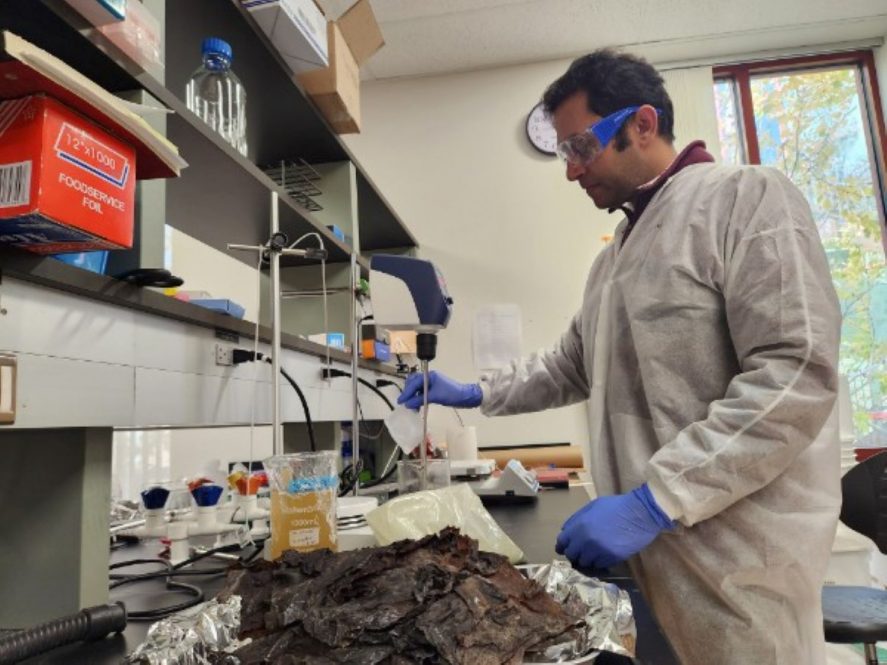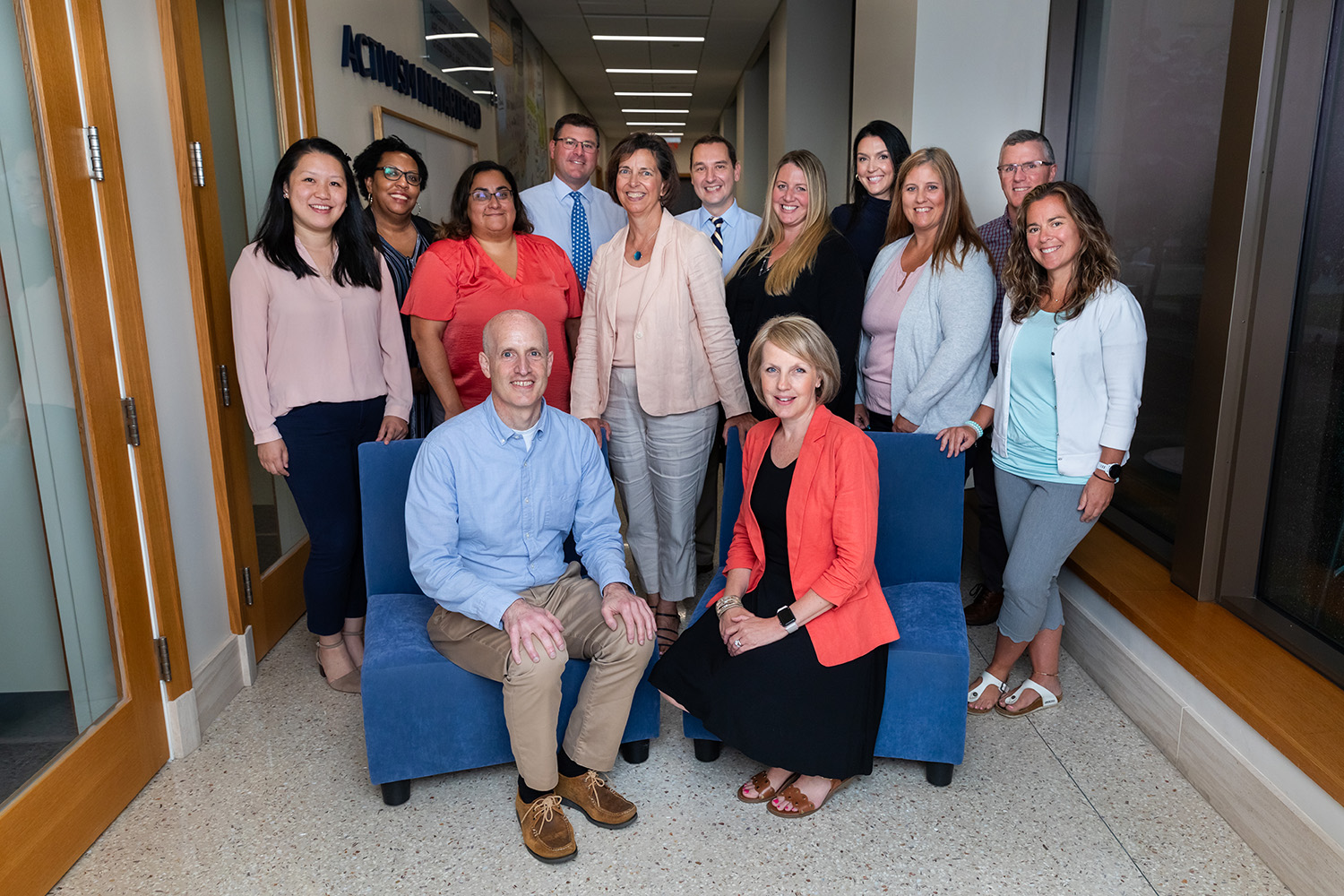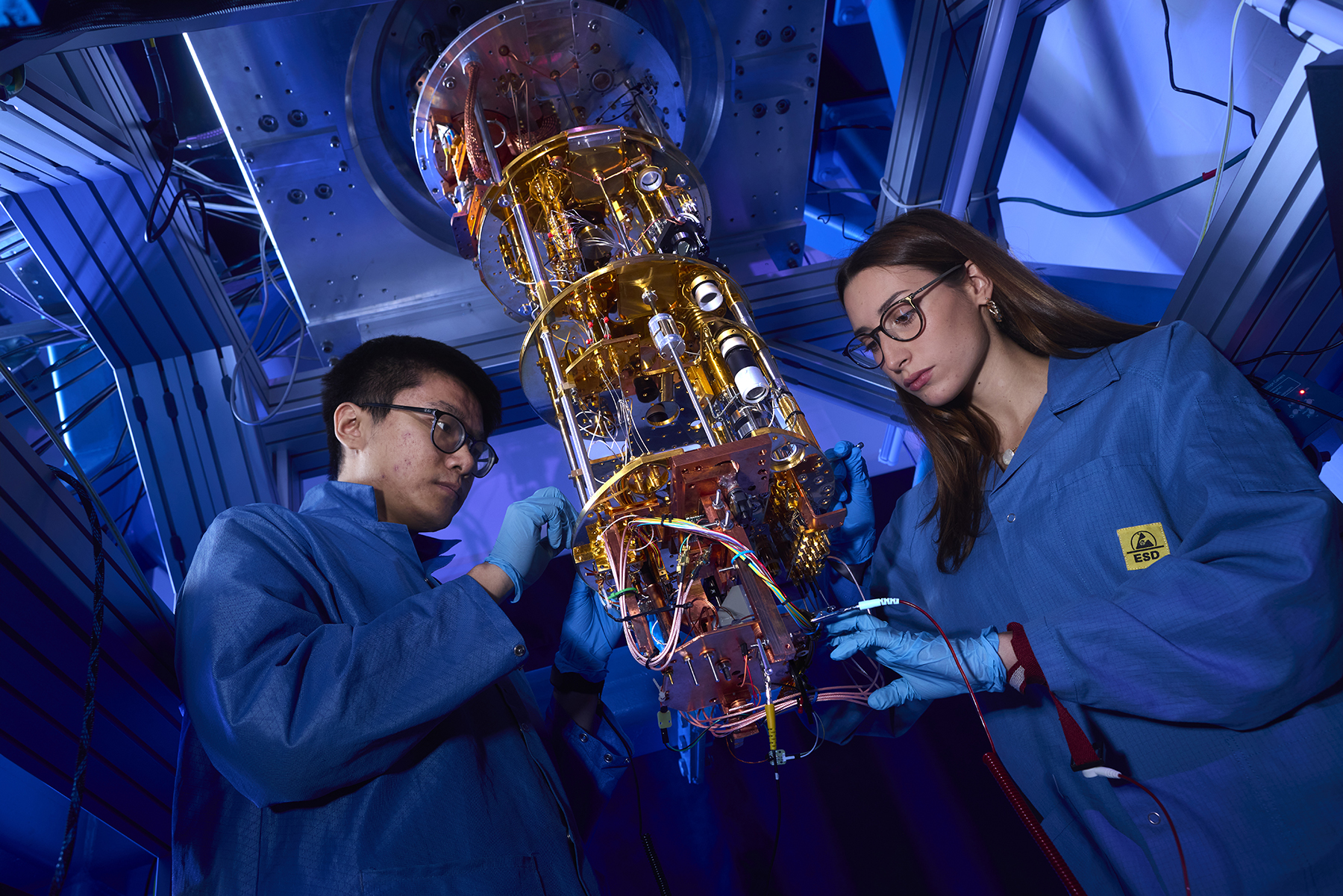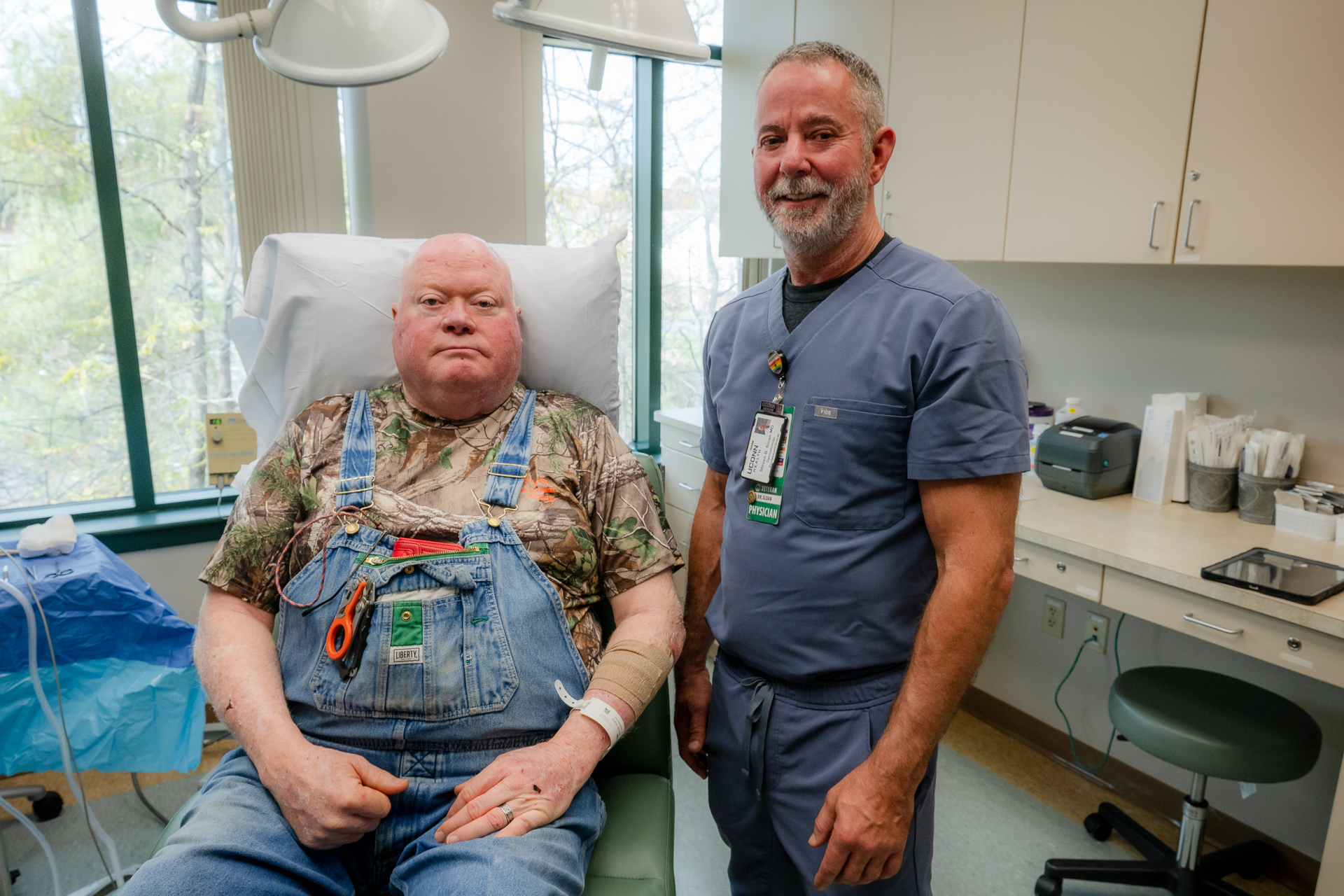A start-up built on groundbreaking UConn technology capable of creating new opportunities for Connecticut sugar kelp farmers has been awarded a coveted Phase I Small Business Innovation Research (SBIR) grant from the U.S. Department of Agriculture (USDA).
The $175,000 in seed funding will help Atlantic Sea Solutions, Inc. (DBA Atlas) – a green technology company based at UConn’s Technology Incubation Program (TIP) – develop a prototype of an edible food coating made from seaweed extract that extends the shelf-life of fresh produce.
Atlas is the only company in Connecticut to receive one of the 60 grants awarded in the latest round of SBIR funding from the USDA. That’s a coup for Mingyu Qiao, an assistant professor of innovation and entrepreneurship with the College of Agriculture, Health and Natural Resources (CAHNR) Department of Nutritional Sciences, who is co-founder and president of the company. The position – jointly funded by CAHNR and the Office of Vice President for Research (OVPR) – was created as part of a broader initiative launched by President Radenka Maric in 2022 to foster the hiring of “Innovation Faculty” to bolster entrepreneurship and grow the state’s economy. The SBIR award is a major realization of that goal.
“I feel really lucky,” says Anuj Purohit, a research associate, and food scientist with CAHNR’s Department of Nutritional Sciences, and co-founding CEO of the company with Qiao. “Given the extremely competitive nature of the grant, we were absolutely delighted.”
Qiao is excited but not surprised.
“This is by design,” he says of winning the grant. “It’s a repeatable model and a programmable effort.”

Qiao brings valuable prior experience in tech commercialization to his role. Before joining UConn, he co-founded another company built on university technology while doing post-doctoral work at Cornell University. During his tenure, the company raised close to $14 million in less than four years. Qiao’s charge at UConn is to pursue research projects that align with state industries and promote economic growth. Seaweed struck him as a good place to start.
Purohit built the lab from scratch and worked for two and half years to develop the all-natural coating before filing for a patent with the assistance of the OVPR’s Technology Commercialization Services (TCS). Under Qiao’s guidance, Atlas qualified for UConn and federal NSF I-Corps grants.
Last year, the company earned an invitation to the Connecticut Center for Entrepreneurship and Innovation (CCEI) Summer Fellowship, which provided the funding and assistance needed to refine its business model, develop a go-to-market strategy, and connect with mentors in the business community.
The Phase I SBIR funding will help Atlas develop crude pilot concept for its edible coating technology. That prototype will in turn help secure prospective customers and position the company for other grants and additional SBIR funding.
Connecticut’s emerging kelp farming industry produces sugar kelp primarily for food. Finding a place to sell the kelp has been a challenge for state seaweed farmers and a bottleneck to growth.
“There’s been growing interest among state farmers in cultivating seaweed in Long Island Sound for its environmental benefits, but they don’t know how or where they can sell it,” Qiao explained.
Other commercial uses of seaweed include pharmaceutical products such as sunscreen and moisturizers and food products such as yogurt and sauces. Using seaweed extract to preserve food is an entirely new application with the potential to revolutionize the food industry, Qiao says.
“This is a new niche; a pioneering use,” he says.
The company team also includes Chief Business Officer Matt Cleaver, who has extensive experience in the produce industry and raising capital for agriculture startups. The team believes its coating can double the shelf-life of perishable foods by reducing shrinkage and spoilage. Another selling point is that it does not change the flavor of the food.
Qiao hopes to secure additional SBIR grants to scale company operations and produce bigger models to test the product. Long term, he envisions building a seaweed biorefinery in Connecticut that would enable the company to ramp up production of the coating sufficiently to sell it nationally and even internationally.
Building companies like Atlas is a major element of his job, says Qiao. That work includes attracting postdoctoral and graduate students with industry experience to UConn, fostering the development of new inventions and patents, and providing entrepreneurship training supported by the UConn ecosystem.
“The objective is to launch more deep-tech startups from UConn that can ultimately attract SBIR and private funding, creating a cycle that feeds into the UConn research enterprise,” he says. “This grant demonstrates that the original plan is working and that we might be able to successfully replicate this model at UConn to launch more startups either from my lab or those of other UConn faculty members.”
“This award is exciting news for Dr. Qiao and for UConn,” adds Kumar Venkitanarayanan, interim dean of CAHNR. “It highlights the significant economic value of this innovative technology and its potential to enhance the health and well-being of people in Connecticut and far beyond.”



